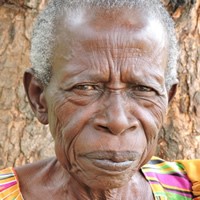Masaba, Bamasaba in Uganda

Photo Source:
Catherine Mabongor
|
Send Joshua Project a map of this people group.
|
| People Name: | Masaba, Bamasaba |
| Country: | Uganda |
| 10/40 Window: | No |
| Population: | 2,503,000 |
| World Population: | 2,572,000 |
| Primary Language: | Masaaba |
| Primary Religion: | Christianity |
| Christian Adherents: | 83.00 % |
| Evangelicals: | 32.00 % |
| Scripture: | Complete Bible |
| Ministry Resources: | Yes |
| Jesus Film: | Yes |
| Audio Recordings: | Yes |
| People Cluster: | Bantu, Central-Lakes |
| Affinity Bloc: | Sub-Saharan Peoples |
| Progress Level: |
|
Introduction / History
Bamasabas are a large Bantu people group who live in eastern Uganda, specifically in Mbale and Sironko Districts, adjacent to Mt. Elgon on the Kenyan border. They migrated from Kenya and were the first people to inhabit the western and southwestern slopes of Mt. Elgon (known as Mt. Masaba by the locals). The area is considered the food-basket of Uganda and is also known for producing high-quality Arabica coffee, the main cash crop.
They live in the Mbale, Sironko, Bududa, Manafa, and Bulambuli districts of Uganda. A smaller number are in Kenya where they are called Gisu Masaba.
What Are Their Lives Like?
Bamasabas are subsistence farmers, growing bananas, sweet and Irish potatoes, cabbage, tomatoes, maize, beans, carrots, passion fruit and onions. They also raise cattle and other livestock and trade on a small scale. The main custom that distinguishes them from other tribes is their tradition of male circumcision. They see this rite as their defining feature as a tribe.
What Are Their Beliefs?
They have different naming rituals and worship a different local god than their neighbors, although the majority belong to one of the many Christian churches in the area.
However, they have a strong church, and about a third are Bible believing Christians.
What Are Their Needs?
Bamasabas need proper housing, especially housing situations that can withstand floods and landslides. They also need clean drinking water.
Their dense population and limited land mean that there is not enough land for younger generations to farm. Many must move to the cities to make a living.
Prayer Points
Pray for the Holy Spirit to bring revival to Bamasaba families and churches, spurring them on to love and good works.
Pray for many to become Christ's ambassadors to those without the gospel.
Pray for the Lord to bless them physically and spiritually as a testimony of his power and goodness.
Pray for Bamasabas husbands to love their wives as Christ loves the Church.